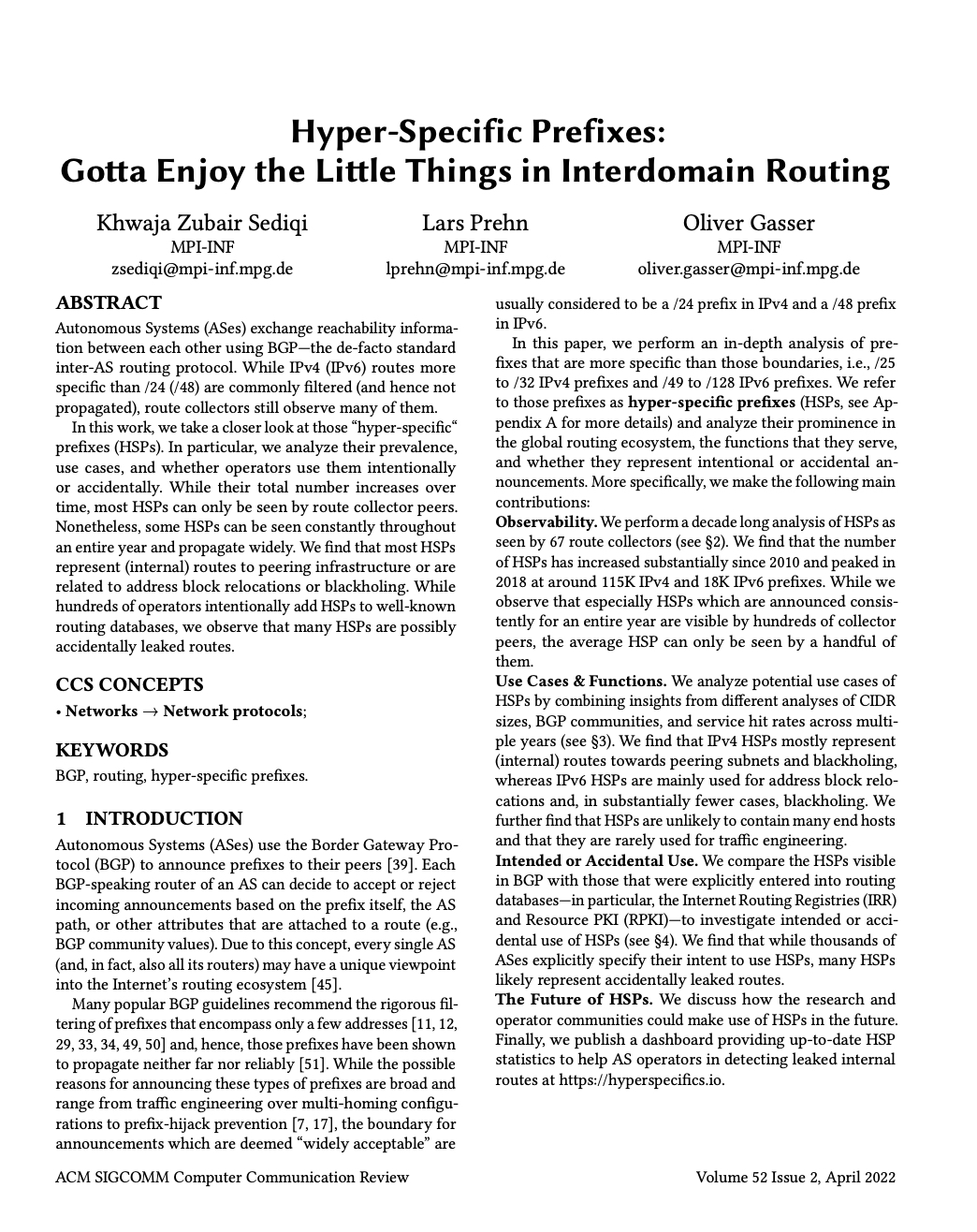Paper

Abstract: Autonomous Systems (ASes) exchange reachability information between each other using BGP the de-facto standard inter-AS routing protocol. While IPv4 (IPv6) routes more specific than /24 (/48) are commonly filtered (and hence not propagated), route collectors still observe many of them. In this work, we take a closer look at those "hyper-specific" prefixes (HSPs). In particular, we analyze their prevalence, use cases, and whether operators use them intentionally or accidentally. While their total number increases over time, most HSPs can only be seen by route collector peers. Nonetheless, some HSPs can be seen constantly throughout an entire year and propagate widely. We find that most HSPs represent (internal) routes to peering infrastructure or are related to address block relocations or blackholing. While hundreds of operators intentionally add HSPs to well-known routing databases, we observe that many HSPs are possibly accidentally leaked routes.
Authors: Khwaja Zubair Sediqi, Lars Prehn and Oliver Gasser.
Download paper Bibtex